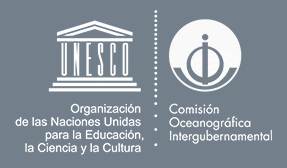Displaying 893 results.
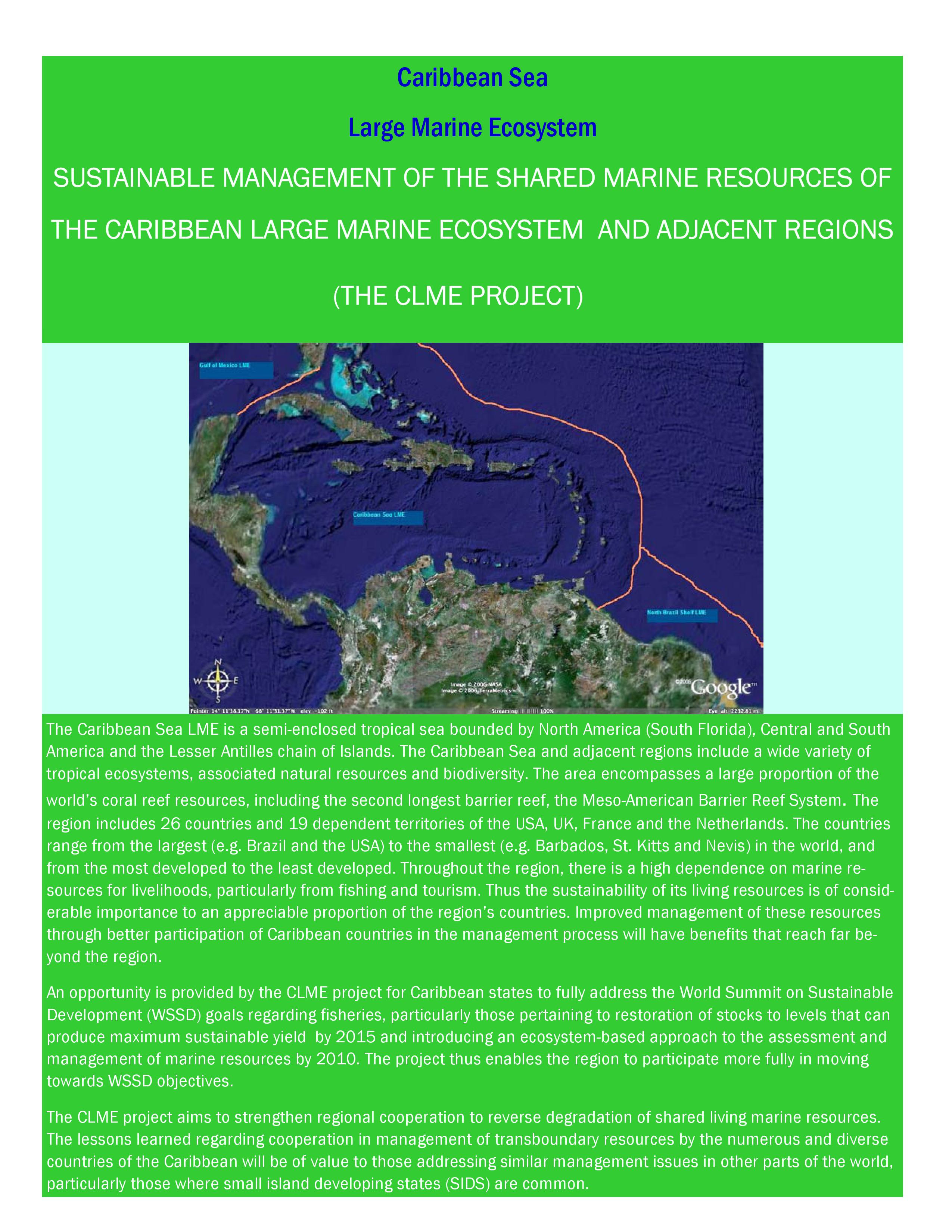
Caribbean Sea Large Marine Ecosystem – Sustainable Management of The Shared Marine Resources of The Caribbean Large Marine Ecosystem and Adjacent Regions
The CLME project responds to the need cited by key decision-makers for attention to the management of shared marine resources in the Caribbean LME and adjacent regions and the call to provide mechanisms facilitating informed decision-making. Typically, the LME approach includes
five modules that focus on different aspects of the ecosystem: (1) productivity, (2) fish and fisheries, (3) pollution and ecosystem health, (4) socio-economics, and (5) Governance.
Author: CERMES
Year:
Keywords:
 6
6


 Report issue
Report issue
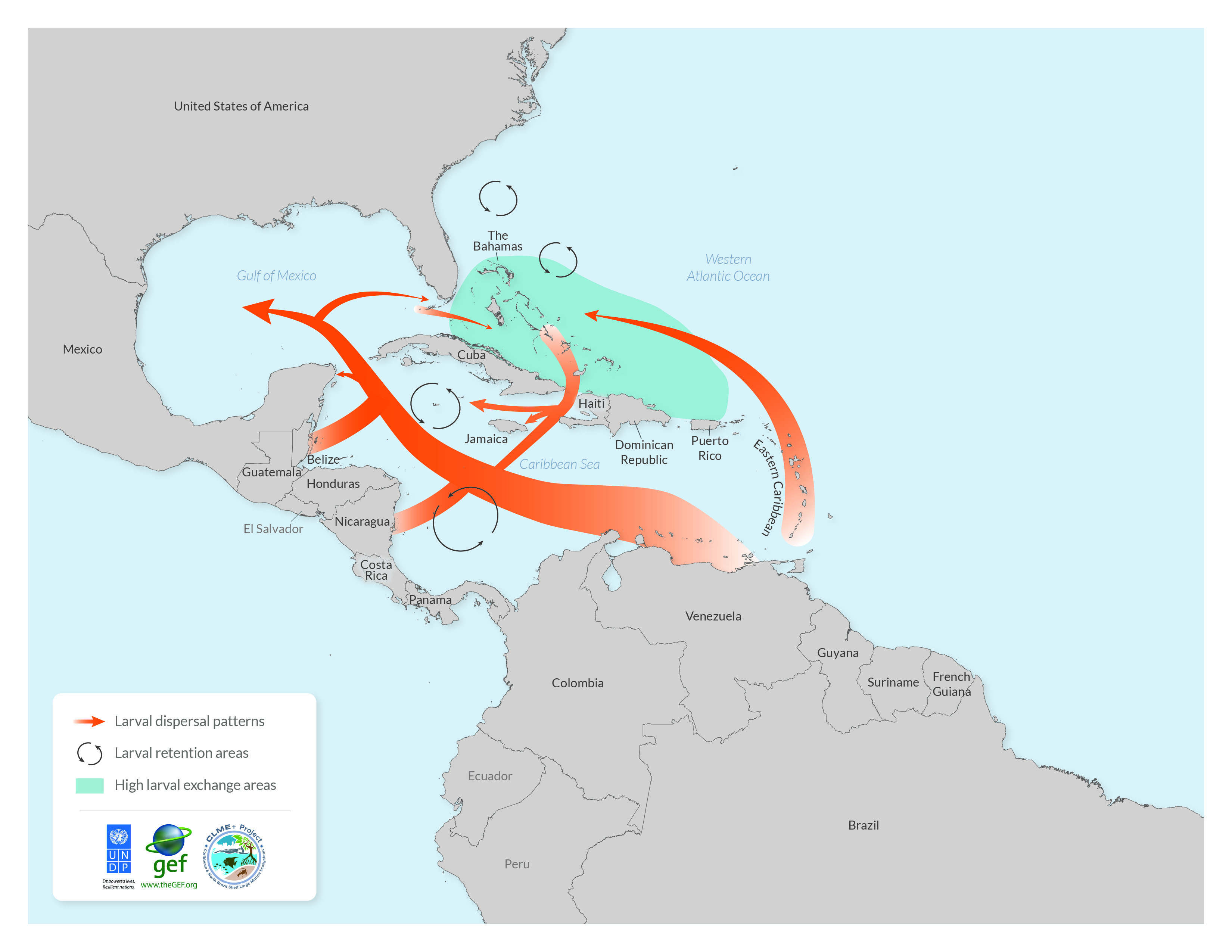
Caribbean Spiny Lobster Larval Dispersal Patterns and Larval Retention Areas Map
Larval drift determines the source of recruitment to the fishery, and it is thought that maintaining the lobster population at a particular site may depend on larvae arriving from distant localities. The drift of larvae across political boundaries creates a strong link among the countries that share this transboundary resource.
Author: CLME+ PCU
Year: 2019
Keywords: spiny lobster
 15
15
 1
1

 Report issue
Report issue
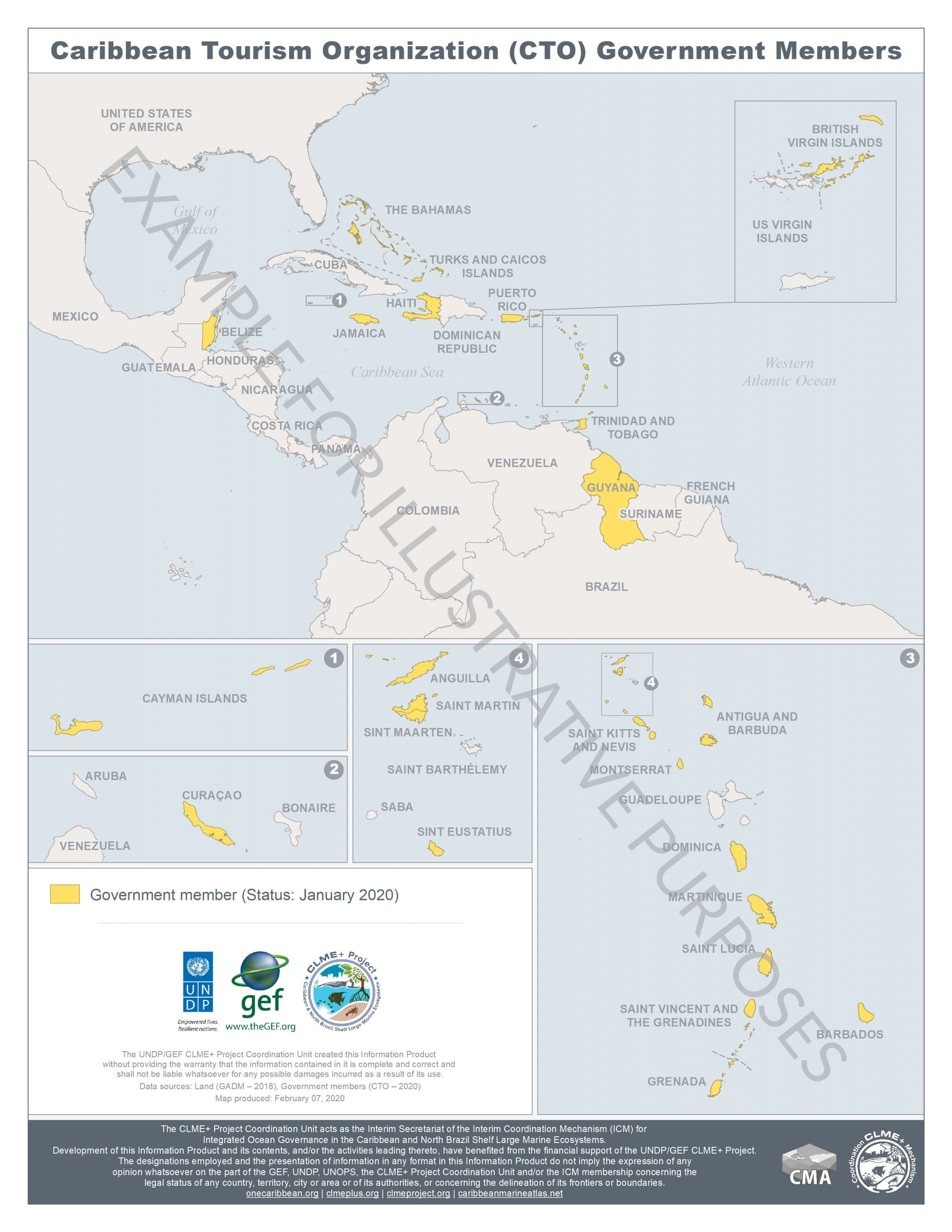
Caribbean Tourism Organization (CTO) Government Members
Author: CLME+ PCU
Year: 2020
Keywords: Caribbean Tourism Organization (CTO) Government Members
 6
6


 Report issue
Report issue
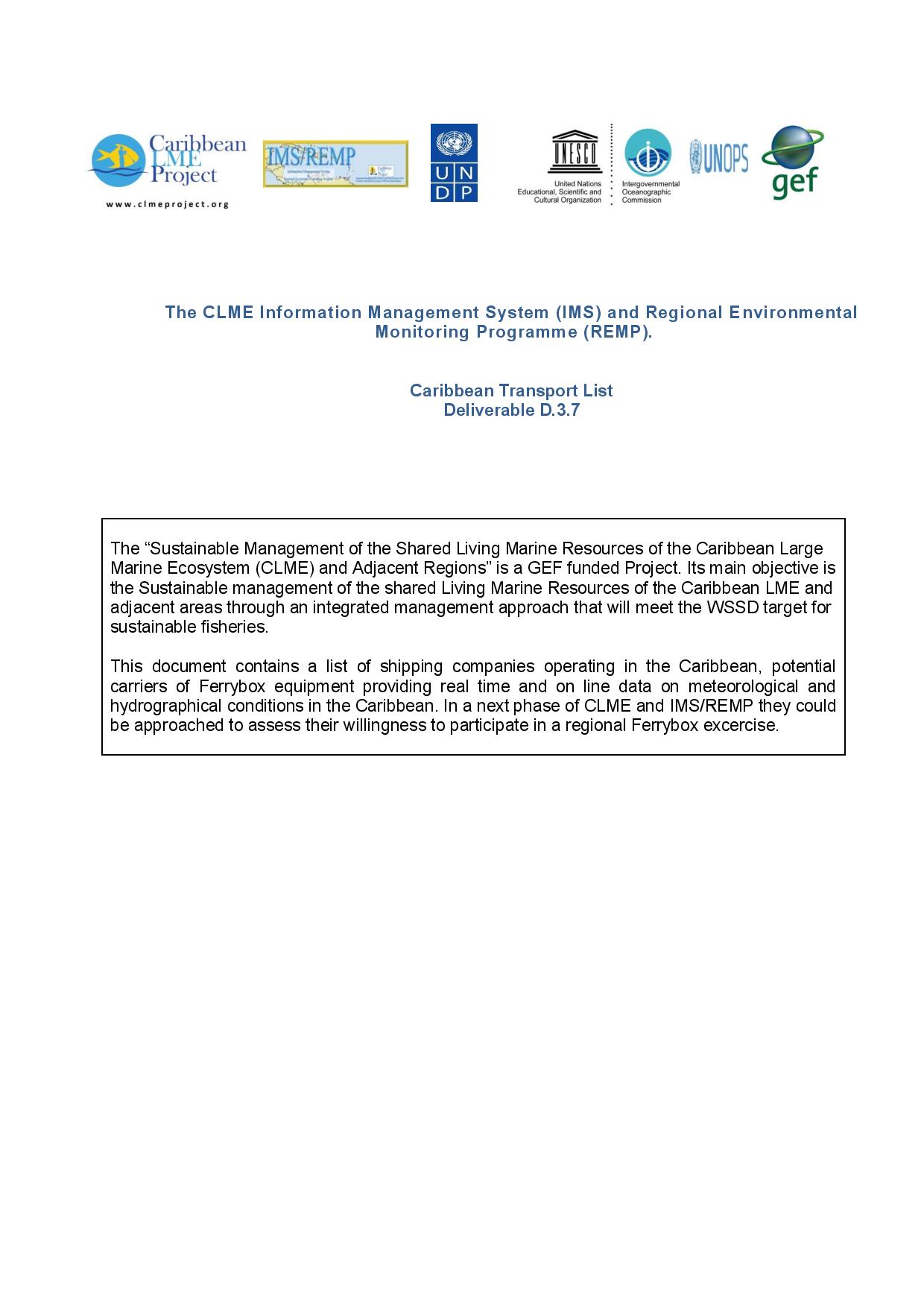
Caribbean Transport List Deliverable D.3.7
This document contains a list of shipping companies operating in the Caribbean, potential carriers of Ferrybox equipment providing real time and on line data on meteorological and hydrographical conditions in the Caribbean. In a next phase of CLME and IMS/REMP they could be approached to assess their willingness to participate in a regional Ferrybox excercise.
Author: CLME PCU
Year: 2012
Keywords: shipping companies operating in the Caribbean carriers of Ferrybox equipment meteorological and hydrographical conditions in the Caribbean
 4
4


 Report issue
Report issue
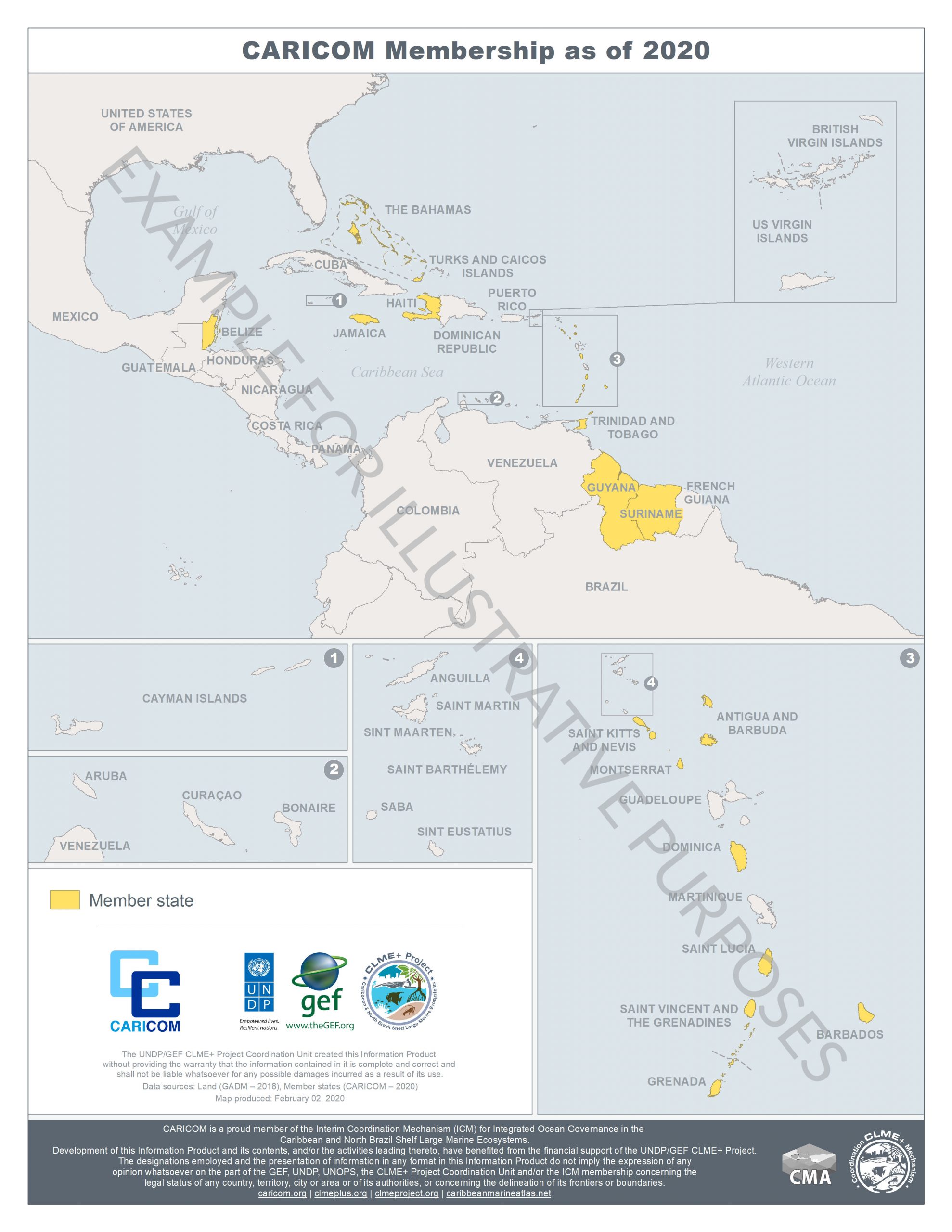
CARICOM Membership as of 2020
Author: CLME+ PCU
Year: 2020
Keywords: CARICOM Membership as of 2020
 4
4


 Report issue
Report issue
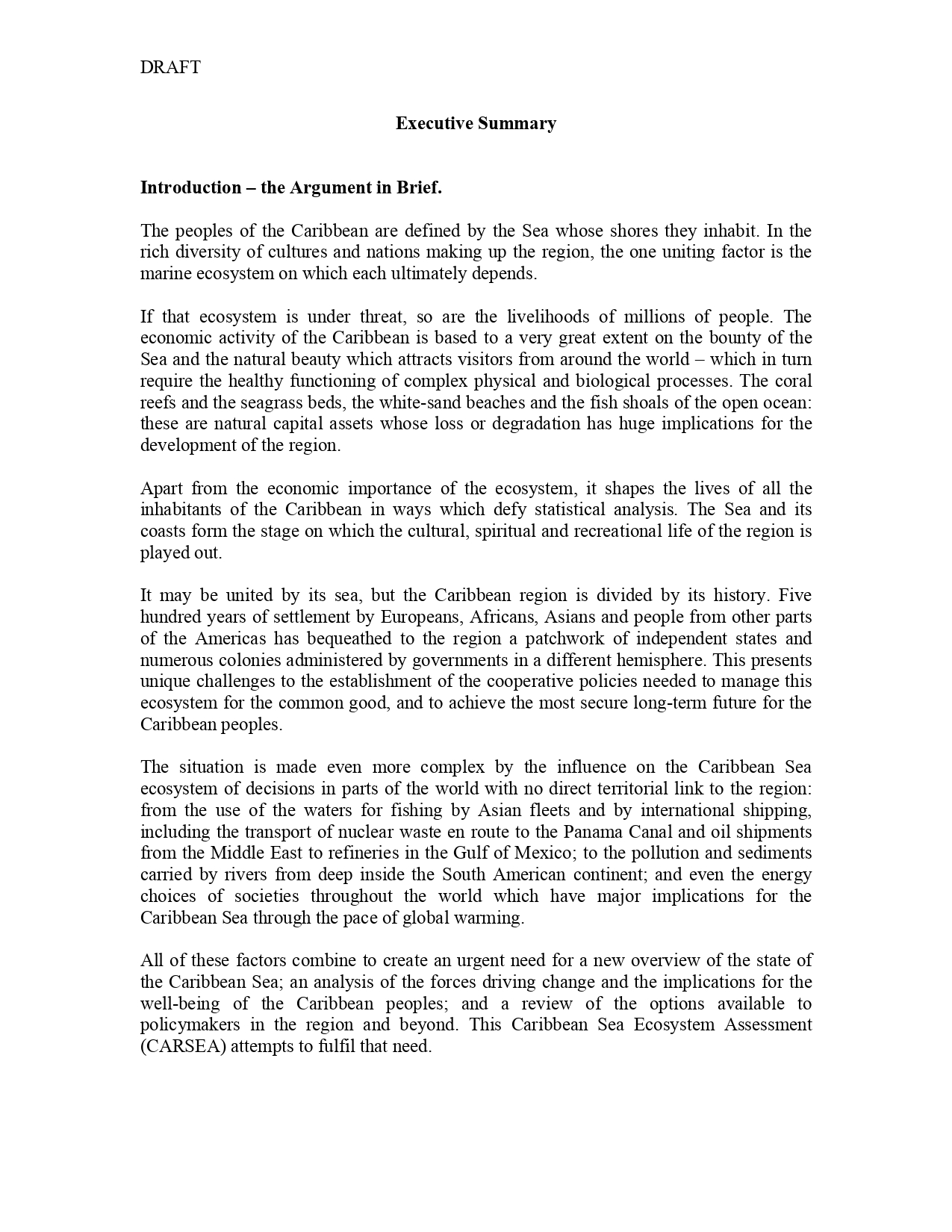
CARSEA Millenium Ecosystem Assessment Caribbean – Executive Summary
This project seeks to make use of the many but disparate research results that have accumulated on various aspects of the forces that are impacting the Caribbean Sea and the effects of those driving forces on the capacity of the ecosystem and on human well-being.
The assessment will also establish a consolidated baseline of data and analysis relating to the condition of the Caribbean Sea, for use in periodic monitoring. It will also serve as an example of an approach to integrated assessment of ecosystems, and to inter-governmental/civic society/academic collaboration.
Author: University of West Indies
Year: 2006
Keywords:
 9
9


 Report issue
Report issue
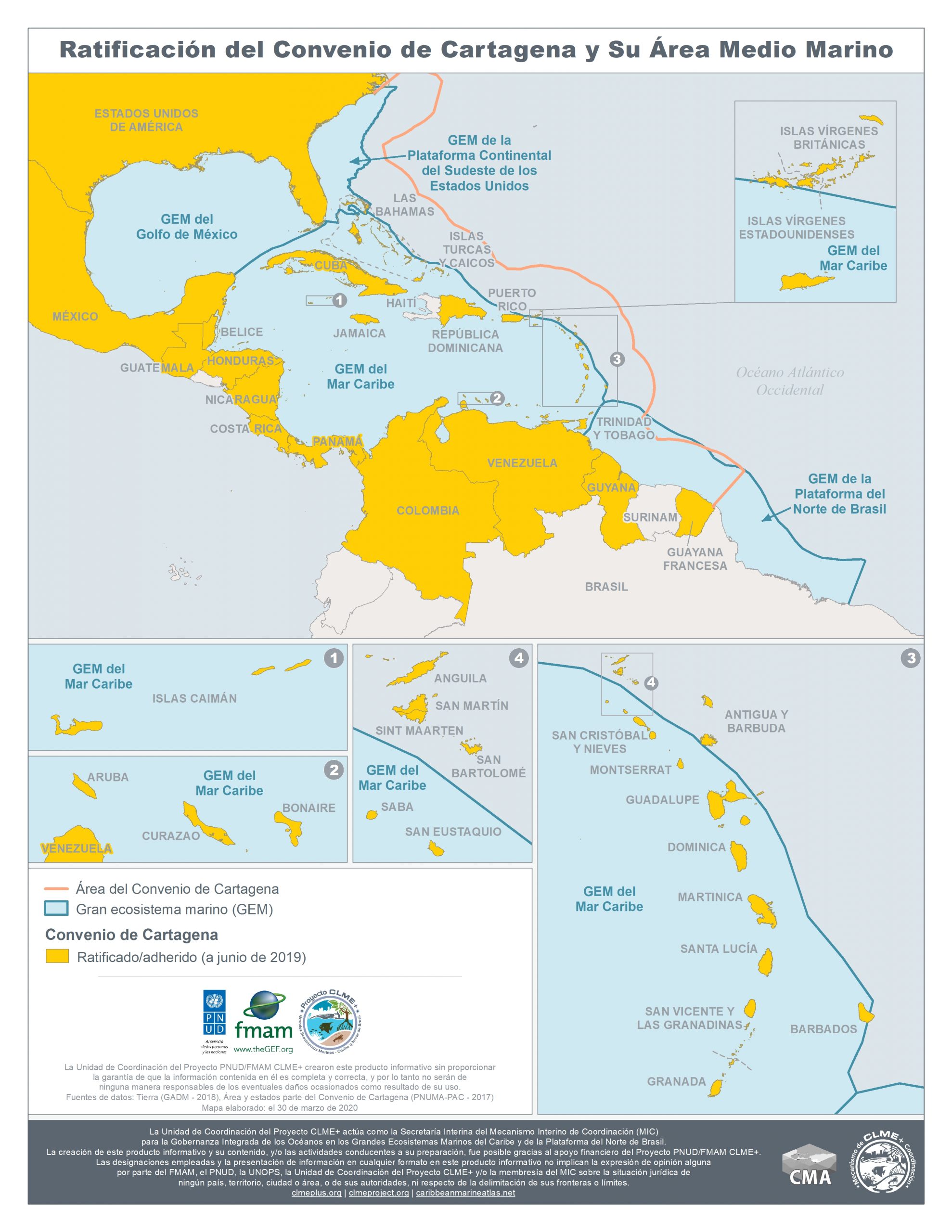
Cartagena Convention Ratification and Its Marine Environment Area
Author: CLME+ PCU
Year: 2019
Keywords: Cartagena Convention Ratification and Its Marine Environment Area
 4
4


 Report issue
Report issue

Cartagena Convention Ratification Status and Area as of 2019
Author: CLME+ PCU
Year: 2019
Keywords: Cartagena Convention Ratification Status and Area as of 2019
 5
5


 Report issue
Report issue
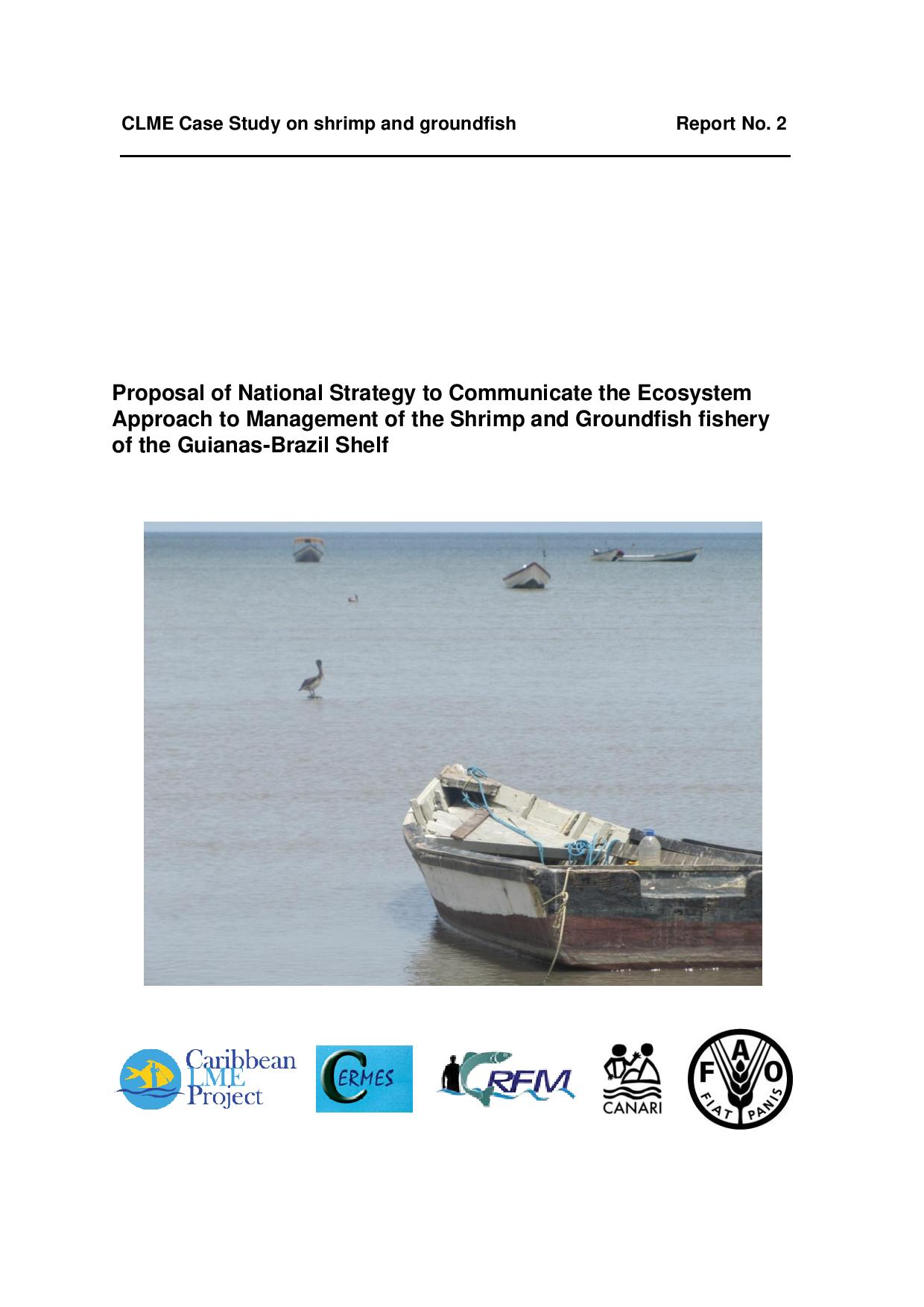
Case Study For The Shared Stocks Of The Shrimp And Groundfish Fishery Of The Guianas – Brazil Shelf Proposal of National Strategy to Communicate the Ecosystem Approach to Management of the Shrimp and Groundfish fishery of the Guianas -Brazil Shelf
The purpose of the case study on Shared Stocks of the Shrimp and Groundfish Fishery of the Guianas-Brazil Shelf was to fill knowledge gaps, contribute to the final CLME Transboundary Diagnostic Analysis and to the Strategic Action Programme (SAP), with priority actions to be undertaken to ensure the sustainability of the shrimp and groundfish fisheries. Another objective was to mainstream the Ecosystem Approach to Fisheries (EAF) in the management of shrimp and ground fish fisheries. Both objectives were addressed through assessments/studies at the national and regional levels, with the participation of stakeholders and following some of the key steps of the planning process within an EAF framework
Author: FAO
Year: 2013
Keywords: Case Study Shared Stocks of the Shrimp and Groundfish Fishery of the Guianas-Brazil Shelf fisheries
 4
4


 Report issue
Report issue
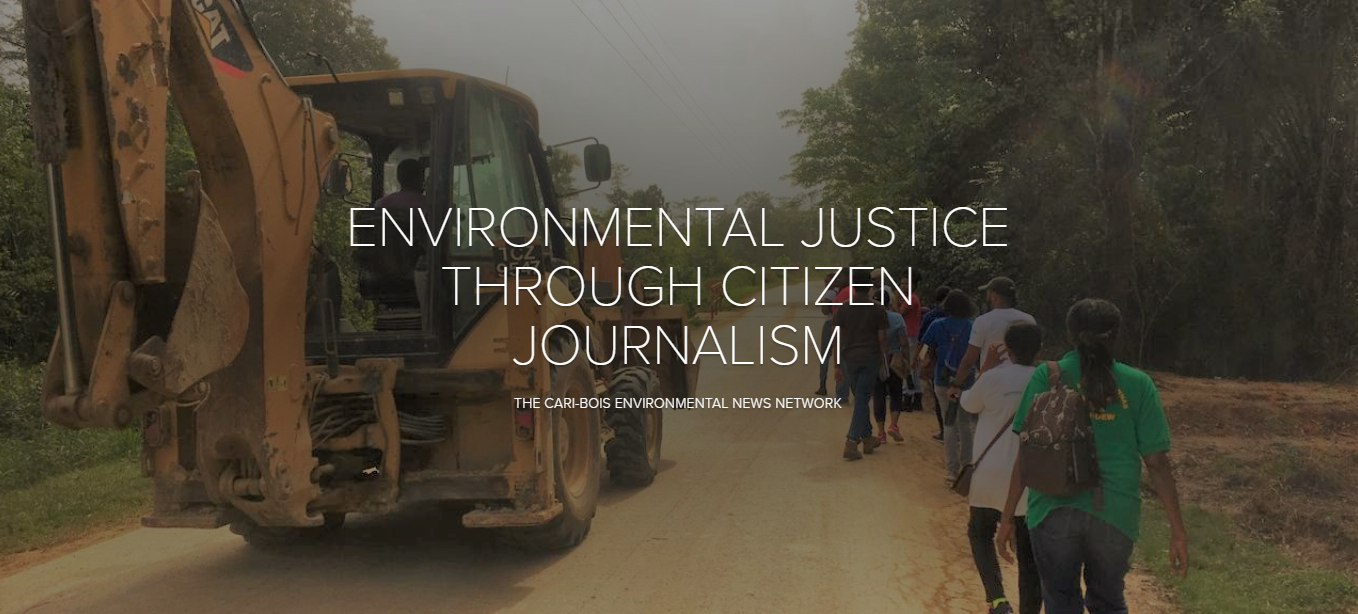
Case Study on environmental justice through citizen journalism: The Cari-Bois Environmental News Network
The Cropper Foundation has released a case study on environmental justice through citizen journalism.
The case study was developed under the project ‘Powering Innovations in Civil Society and Enterprises for Sustainability in the Caribbean (PISCES)’ that aims to support innovative actions by civil society and coastal community small and micro-enterprises for conservation of marine and coastal biodiversity and development of sustainable and resilient livelihoods.
This case study aims to document recent efforts undertaken in Trinidad and Tobago by The Cropper Foundation and a network of Civil Society Organisations (CSOs), in the development of a citizen journalism network as a mechanism for advocacy and communicating local knowledge, that can be applied to the conservation and management of marine protected areas/ marine managed areas (MPAs/MMAs) in Caribbean territories.
Author: The Cropper Foundation
Year: 2021
Keywords: environmental justice, Cari-Bois, citizen journalism, advocacy
 3
3


 Report issue
Report issue










